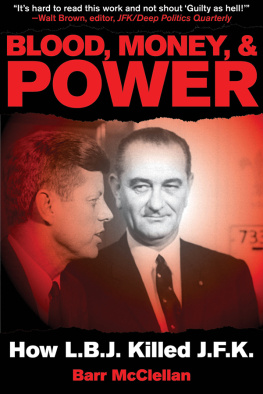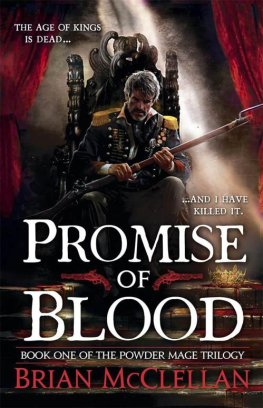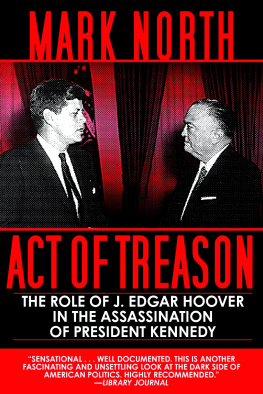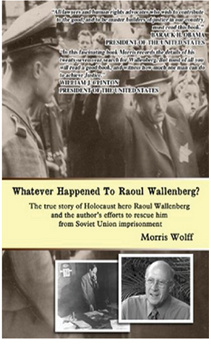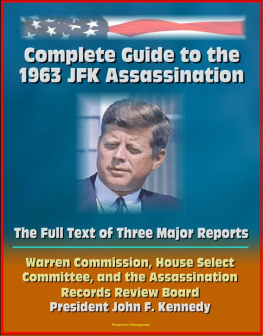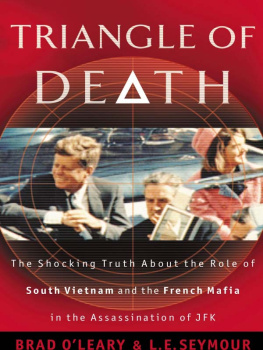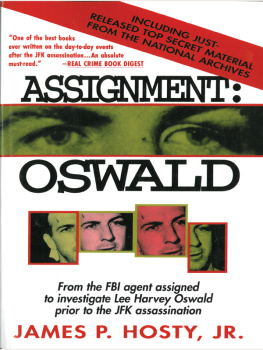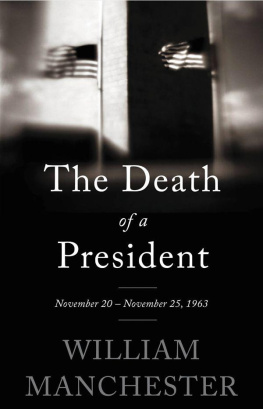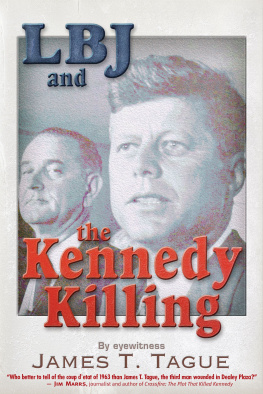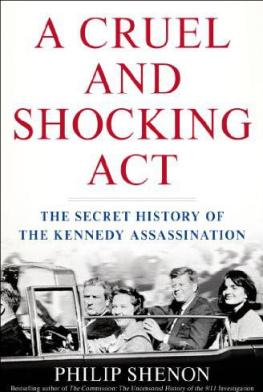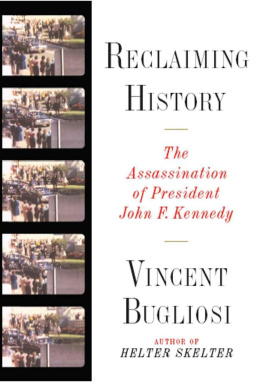Copyright 2011 by Barr McClellan
All Rights Reserved. No part of this book may be reproduced in any manner without the express written consent of the publisher, except in the case of brief excerpts in critical reviews or articles. All inquiries should be addressed to Skyhorse Publishing, 307 West 36th Street, 11th Floor, New York, NY 10018.
Skyhorse Publishing books may be purchased in bulk at special discounts for sales promotion, corporate gifts, fund-raising, or educational purposes. Special editions can also be created to specifications. For details, contact the Special Sales Department, Skyhorse Publishing, 307 West 36th Street, 11th Floor, New York, NY 10018 or .
Skyhorse and Skyhorse Publishing are registered trademarks of Skyhorse Publishing, Inc., a Delaware corporation.
www.skyhorsepublishing.com
10 9 8 7 6 5 4 3 2 1
Library of Congress Cataloging-in-Publication Data is available on file.
ISBN: 978-1-61608-197-3
eISBN: 978-1-63220-421-9
Printed in the United States of America
For Cecile, dearly beloved always
Contents
Self-knowledge is the indispensable prelude to self-control; and self-knowledge, for a nation as well as an individual, begins with history.
Arthur M. Schlesinger Jr.
Introduction
The Texas School Book Depository stands lonely and stark, an ancient redbrick building aside the slope framing Dealey Plaza in Dallas, Texas. Some years ago Dallas leaders tried to remove the old building but the public insisted that a memorial remain. Today it is the Sixth Floor Museum. Other floors house municipal offices.
The assassination of President Kennedy in that plaza still remains one of the most tragic events of the twentieth century. At the time, we were shocked that such a charismatic leader could be killed so quickly and so brutally. The sudden, horrific loss remains with us as an emotional attachment that continues to haunt both our individual memories and our history as a nation. Americans remember what they were doing at the time of the assassination on the same level of recall that was experienced with Pearl Harbor, FDRs death, the landing on the moon, Nixons resignation and flight, and the terrorist attacks on 9-11.
In the ensuing shock, an initial reaction to the killing was fear it was a prelude to a communist attack. The Cold War was at its height. The Cuban Missile Crisis was still fresh in peoples minds. Some even preached the gospel, Better red than dead. In the same way, on November 22, 1963, fear of a nuclear war escalated as our armed forces went on maximum alert. The danger worsened as the lone nut was identified as a former defector to the Soviet Union and a Cuba sympathizer.
Within two days, a second lone nut carried out a mob-like execution of the first lone nut. Major figures associated with organized crime in America immediately fell under suspicion. In the follow-up, however, the hunt for the assassins ended with Jack Rubys bullet.
Some conservative elements in Dallas had given Kennedy a very unpleasant welcome, branding him a traitor for negotiating with the Soviets. That vicious political attack fueled suspicion of a conspiracy involving Big Oil in the city and perhaps other right-wing elements in Texas. The doubts even extended to our new president, Lyndon Johnson, a Texas political leader for thirty years.
A blue-ribbon commission was appointed to investigate the events in Dallas with Chief Justice Earl Warren named as chair. Within nine months, the members reported there had been only one assassin; there was no conspiracy; and improvements were needed in protecting the president. Although conspiracy theories were downplayed by the Warren Commission as rumors and speculation, the suspicions and controversies did not end.
In the aftermath of the assassination, politics changed dramatically. In November 1963, Kennedys progressive programs were mired in congressional infighting. Barry Goldwater, a dedicated conservative, was preparing to run as a traditionalist, promising a showdown over the progressive politics followed since the Great Depression. With the assassination, that equation was gone. Johnson was the moderate-to-conservative against the staunch conservative. With Kennedy dead, Goldwaters anticipated liberal versus conservative showdown for the voters to decide simply did not happen. In addition, in the shock and the spirit of unity that prevailed after the assassination, Goldwater did not have a chance. He lost decisively in the presidential election that November 1964, only six weeks after the Warren Report memorialized the lone assassin theory, created a lasting icon in our lost president, and awarded Johnson the lingering sympathy vote.
Under Johnsons new leadership, important social and civil rights programs were passed. Emboldened by his November 1964 mandate, the new Johnson, now elected in his own right, was driven by the policy of containment to undertake the very controversial Vietnam War. A strange split in American politics resulted. Johnson was hailed by progressive Democrats for his social programs but rejected by the same group for his war leadership. In a similar policy split, conservative Republicans supported the war but opposed Johnsons Great Society programs. At first, Johnson admired his great compromise, having guns and butter; however, he gradually changed, despising any opposition, be they activists, liberals, conservatives, or even long-time supporters.
As this division hardened with continuing civil rights protests and ever-widening antiwar marches, Johnsons sudden elevation to the presidency was subjected to increasing questions. Some never accepted the loss of Kennedy and some would never accept leadership from Johnson as a southerner and a Texan. By the spring of 1968, when Johnson was literally a prisoner in the White House, all these elements surrounded and haunted him. He could not work miracles. He could not have guns for Vietnam and butter for his Great Society. Acknowledging his overwhelming problems, he abruptly withdrew from any reelection efforts for 1968. On that evening of March 31, 1968, while some Americans were stunned, many rejoiced. There were few political neutrals during 1968.
In the years that followed, Kennedy emerged as a valiant but tragic figure and Johnson a vilified but also tragic character. The former vice president could never be what his president had been. The emotional shock to the nation had never truly gone away. There simply had been no closure because there was no national consensus that justice had been done. In a very subtle way, for a nation united under one leader, the notion that the king is dead, long live the king was never accepted. The president is dead, long live the president never caught on. It lacked both the personalities and the majesty to gain acceptance. The concept that JFK is dead, long live LBJ was simply not acceptable.
As a nation we continued to grieve immensely. We went through the shock and anger and mourning but there was neither acceptance nor closure.
Emotionally, the initial welcome for Johnson was gradually depleted over the five years that followed. That shock and the ensuing split in our personal assessment of Johnson lingers to this day. We find ourselves divided between Kennedy and Johnson; between a lone nut killer and a conspiracy; between our inability to have both guns and butter; and with a lingering opposition to the Vietnam War or full support for that war for containing communism. This conflict combines to leave us as a nation still searching for an answer to what happened. There is no rational explanation for the assassination and there is no emotional closure for the brutal death. What is needed is to bring these feelings to rest, to undertake an emotional purging, to create a catharsis of the will, and, most importantly, to find the solutions to what divides us rationally and emotionally.

